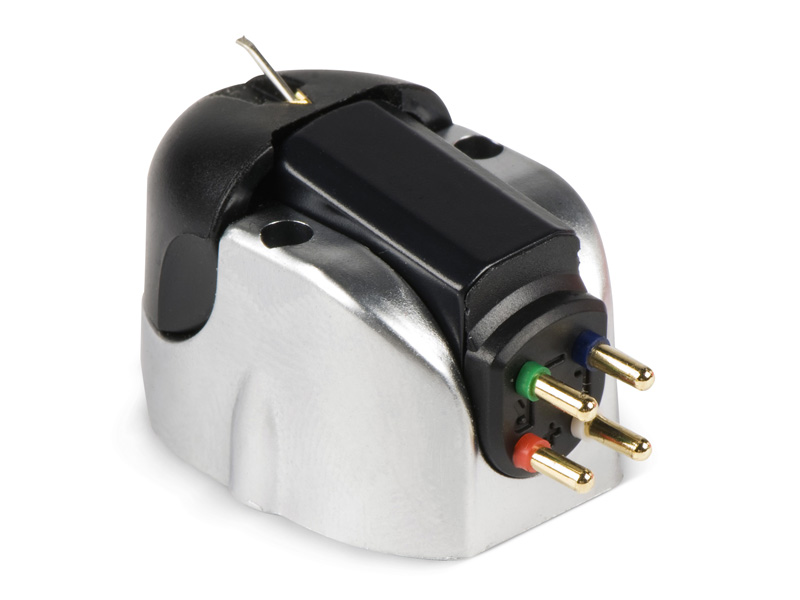TechRadar Verdict
Pros
- +
The bass is full and unashamed but always impeccably controlled
- +
Details and imaging are also good
Cons
- -
Stylus cover could cause problems
Why you can trust TechRadar
The Goldring 2300 is halfway up the 2000 series, but this model differs from its siblings principally in the matter of stylus shape, though there are also changes to the generator assembly.
It's a moving-magnet type, offering the usual advantage of the breed in having a replaceable stylus and its mass is about average at 7.6g. Compliance is moderate and we don't anticipate any problems fitting the 2300 in any conventional tonearm.
Output is slightly higher than most moving magnets produce, but not by enough to cause problems with a typical phono stage.
The rounded plastic body has threaded inserts which do make mounting the cartridge a very easy job, though we're a little nervous about the stylus guard, which if applied incorrectly could do a lot more harm than good!
The most obvious characteristic of the 2300's sound is the sheer solidity it produces. It achieves this thanks to a very reliable bass region which never seems to get into trouble even with the hottest discs.
There's a really great balance to the lowest octaves, which gives drive to rock, poise to classical and, of course, a very natural tone to male vocals. Precisely because the bass is so well balanced, though, it doesn't leap out and assault you the way some budget cartridges seem to.
It has that restraint that's characteristic of so much good hi-fi (it knows when to give and when to hold back).
The treble is nearly as good, though it can just occasionally sound a little constrained: it seems to work well driven hard, but can seem rather too mild-mannered when subtler high frequencies are called for.
Follow TechRadar Reviews on Twitter: http://twitter.com/techradarreview
